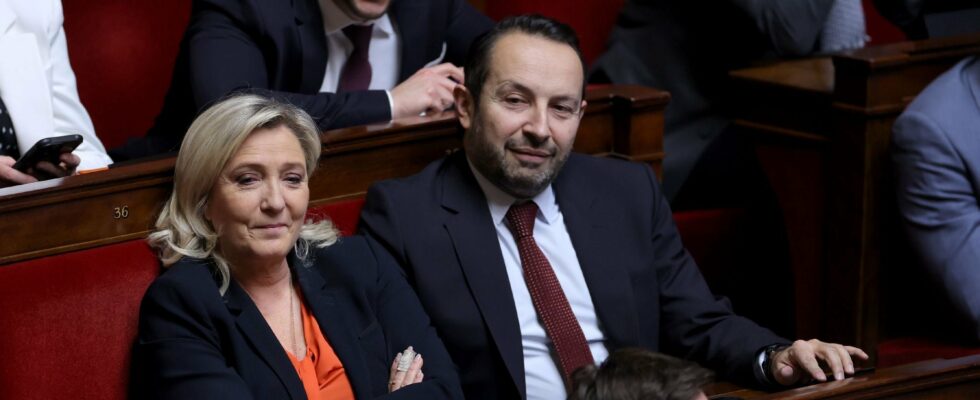Unsurprisingly, France adopts the navy blue color. 39 candidates supported by the National Rally were elected deputies in the first round, including Marine Le Pen (more than 58% of the votes in Pas-de-Calais), Sébastien Chenu and Julien Odoul, a first for the Lepéniste party which had 88 deputies during the previous legislature. In Hauts-de-France, the RN is experiencing a tidal wave with eighteen deputies elected on Sunday: six in Pas-de-Calais, six in the North, four in Aisne, one in the Somme and one in Oise.
It should be noted that if these candidates were selected in the first round, it is because they all collected at least 50% of the votes cast and obtained a number of votes at least equal to 25% of the number of registered voters. A score facilitated by the very high turnout (67.5%). Among these candidates already elected are a large majority of outgoing deputies, but also some new ones, like Eddy Casterman, who defeated Jean-Louis Bricout in the third constituency of Aisne. In Bouches-du-Rhône, the outgoing deputy (RN) Franck Allisio was re-elected in the first round (54.07%). The same goes for Laure Lavalette (RN) who collected 50.8% of the votes in the 2nd constituency of Var.
For its part, the New Popular Front has 32 candidates elected deputies in the first round, according to official figures from the Ministry of the Interior compiled by AFP. In detail, the Insoumis are sending 20 deputies, the Socialists five, the Ecologists also five, and the Communists two.
Several rebellious deputies re-elected
La France insoumise thus welcomes the re-election of many of its leaders, such as its coordinator, Manuel Bompard, in Marseille, or the president of its parliamentary group, Mathilde Panot, in Val-de-Marne. In this same department, Clémence Guetté was also re-elected in the first round for LFI, like Éric Coquerel, the former president of the Finance Committee, or the “rebellious” Clémentine Autain in Seine-Saint-Denis. Still in 93, Bastien Lachaud, candidate for La France insoumise, also won with 71.4%. Another tidal wave for MP Sébastien Delogu (LFI) in the 7th constituency of Bouches-du-Rhône. He far outdistances the RN and Ensemble candidates with 59.67%.
Furthermore, the boss of the Socialists, Olivier Faure, was also easily re-elected in Seine-Maritime (53%), like the Ecologist Sandrine Rousseau in the 9th district of Paris (52%). In Paris, again, the city’s first deputy, Emmanuel Grégoire (PS), was elected in the first round. He notably faced former minister Clément Beaune in his constituency. As for the French Communist Party (PCF), Elsa Faucillon won in Hauts-de-Seine (64.8%).
Philippe Juvin, the only survivor of the first round among the LR
Within the presidential coalition Together for the Republic, two candidates passed the first round with flying colors: Mickaël Seo, with 62.2% of the votes in Wallis and Futuna, and Pierre Cazeneuve, with 53.2% of the votes in Hauts-de-Seine. And among the Republicans? Only Philippe Juvin did well yesterday, also in Hauts-de-Seine (52%).
Exit, on the other hand, the boss of the Communist Party, Fabien Roussel, swept away by the RN wave in the North, while François Ruffin (LFI) finds himself in an unfavorable vote in the Somme and could owe his salvation to the withdrawal of the candidate “Together for the Republic. An example among many others of the dilemma posed to the Macronists and the left, in the more than 300 constituencies in a triangular situation – or even quadrangular in a handful of cases. The candidates still in the running have until Tuesday 6 p.m. to decide whether or not to remain.
